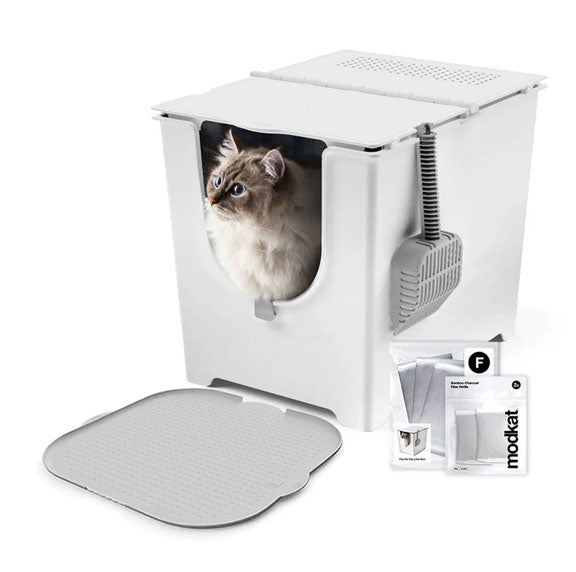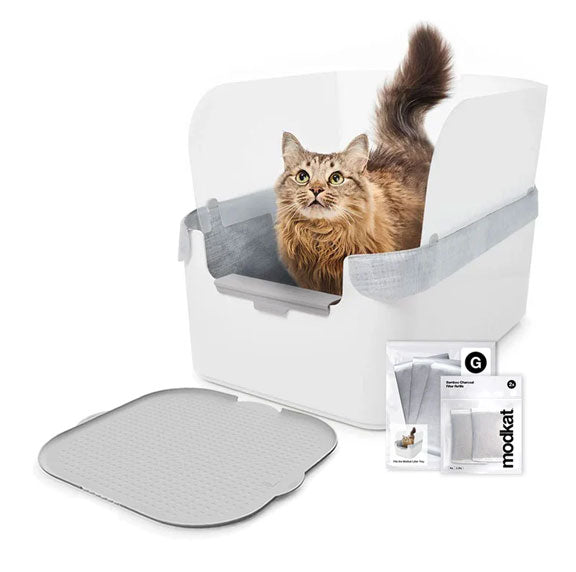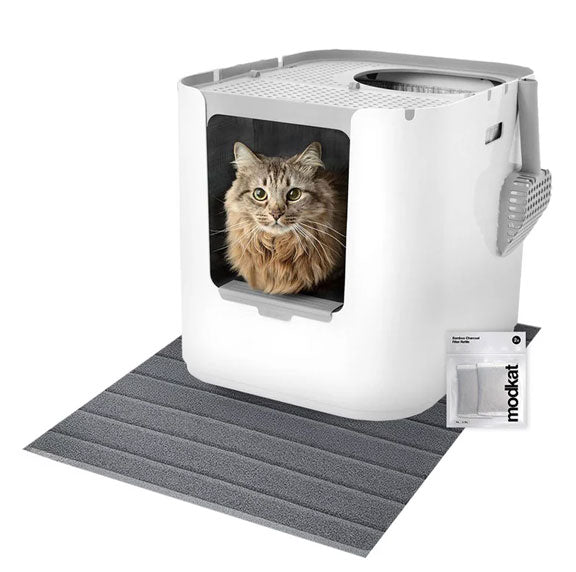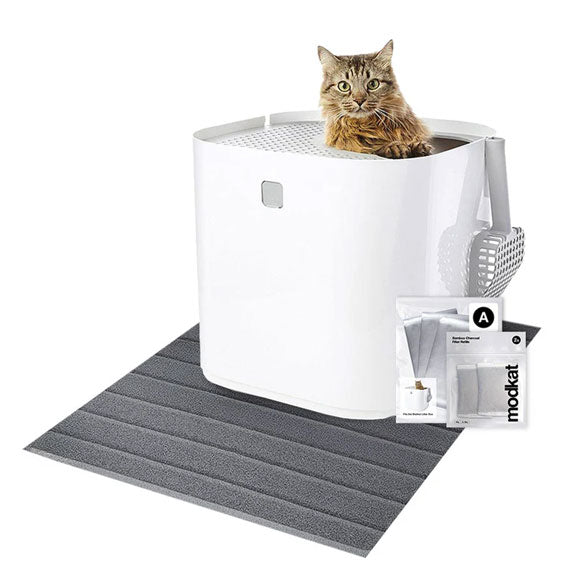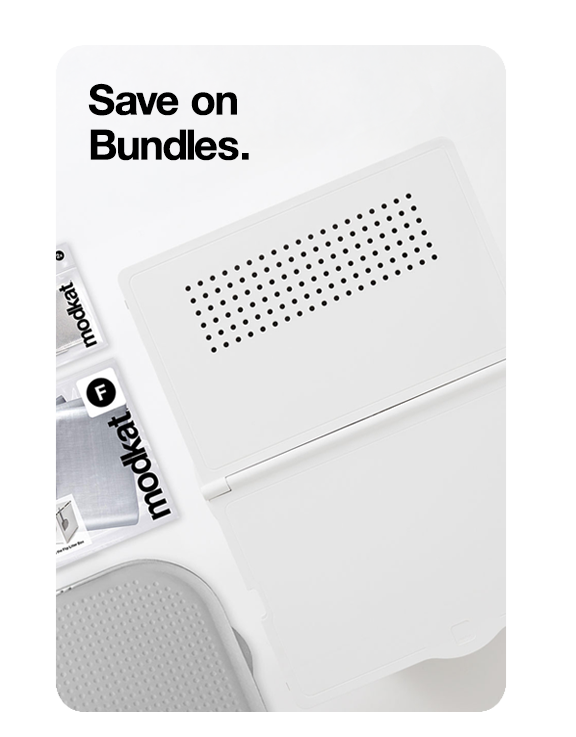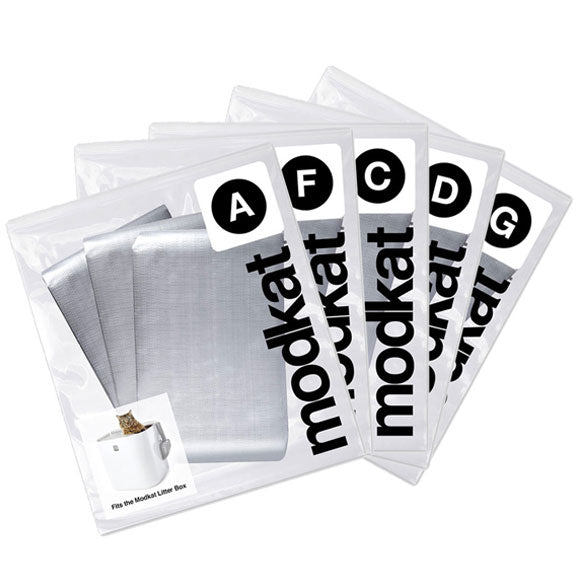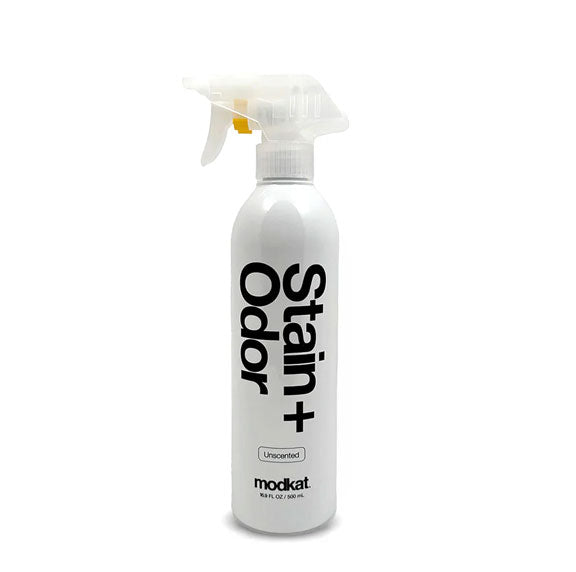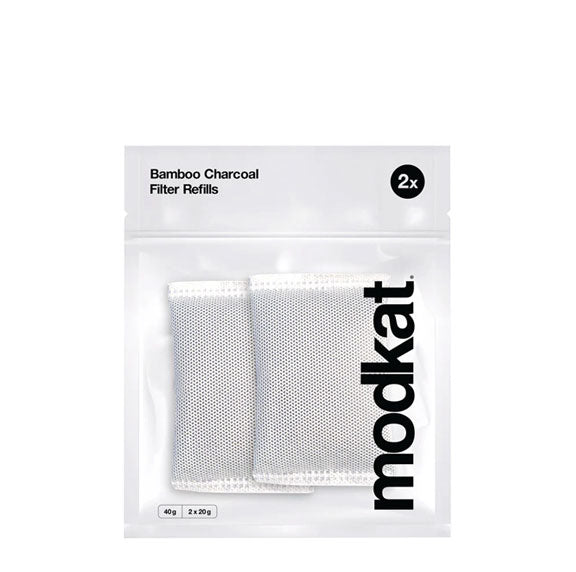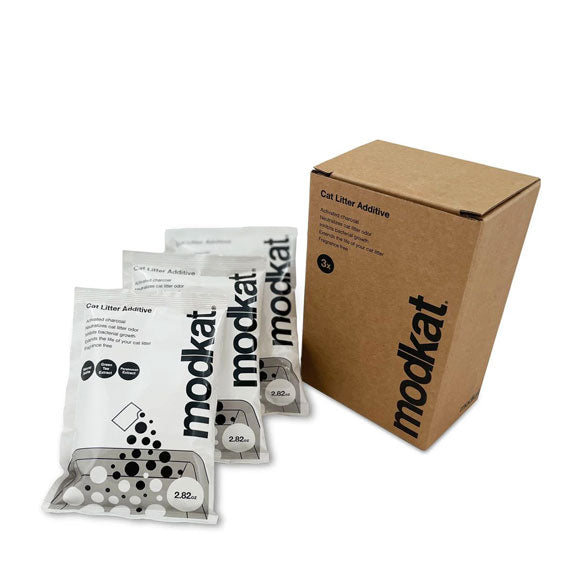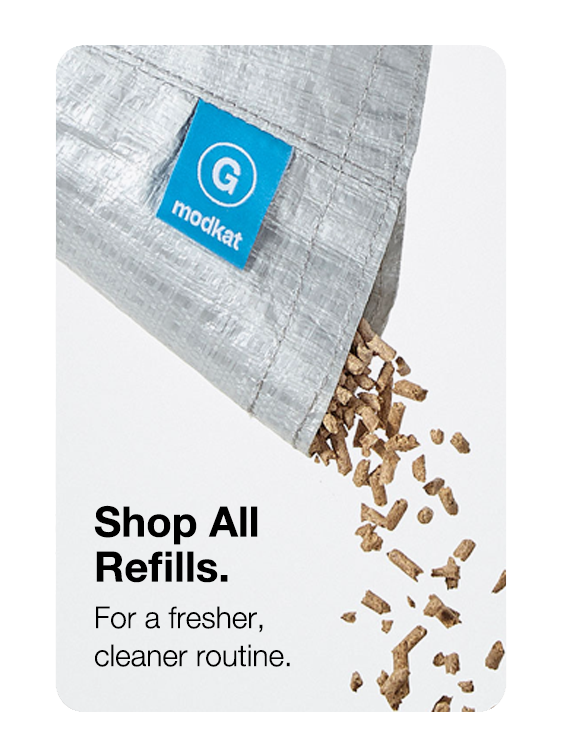20% off sitewide. Discount automatically applied.
20% off sitewide. Discount automatically applied.
Litter Boxes
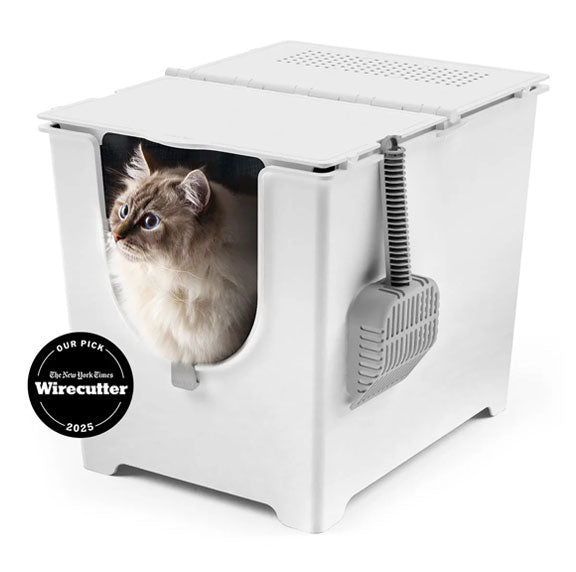
Modkat Flip
Front-Entry Litter Box
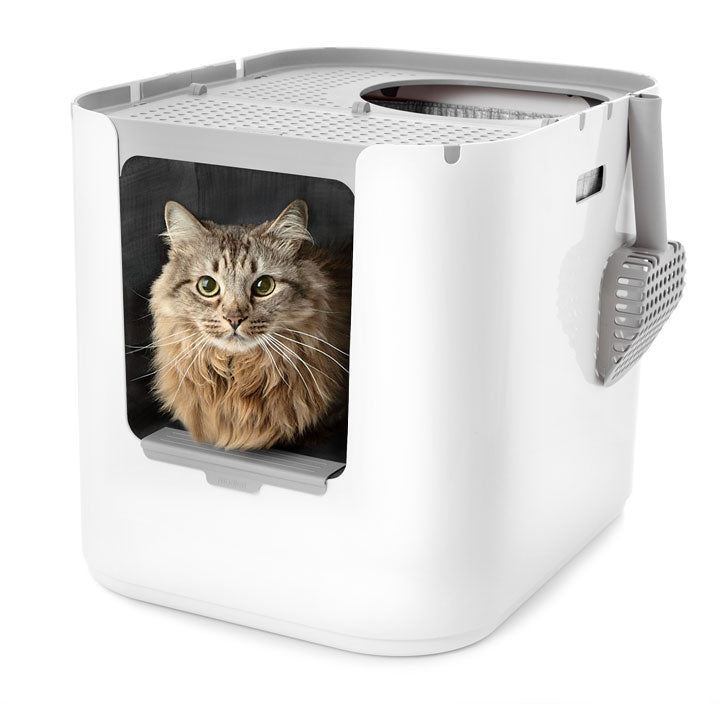
Modkat XL
Front/Top-Entry Litter Box
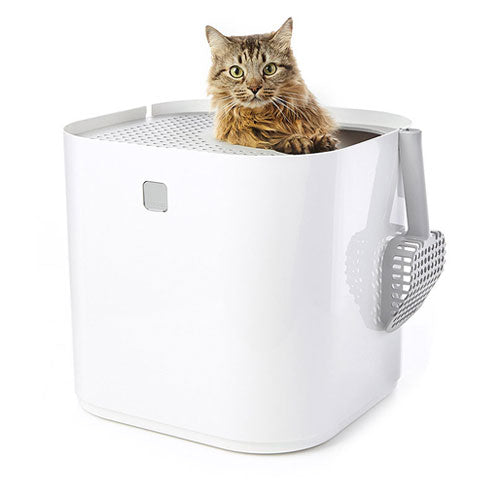
Modkat
Top-Entry Litter Box
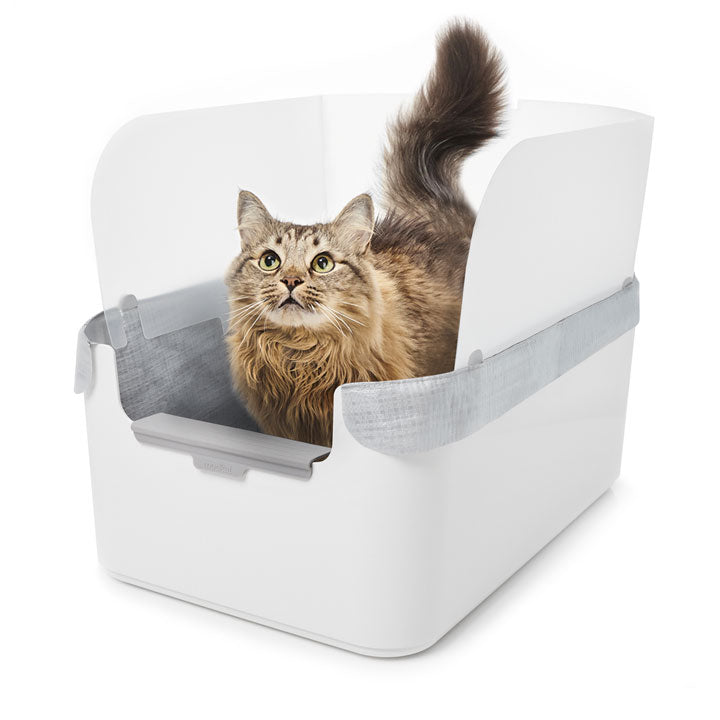
Modkat Tray
Open Litter Box
Bundles
Essentials
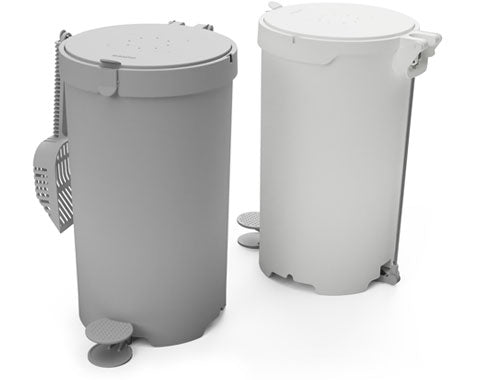
Litter Keeper
Two colors
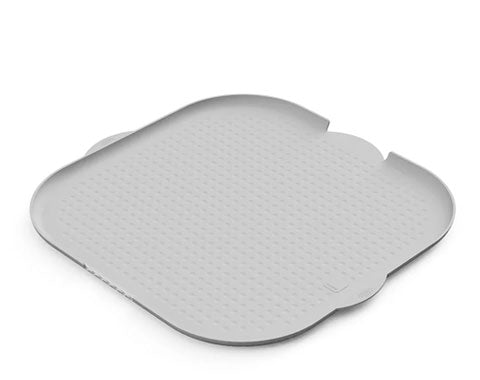
Litter Mats
Multiple styles, colors & sizes
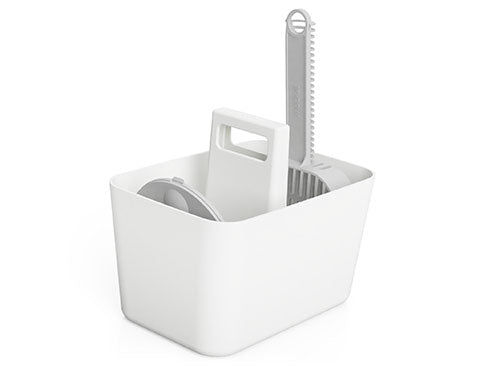
Tidy-Up Kit
Scoop holder & dustpan
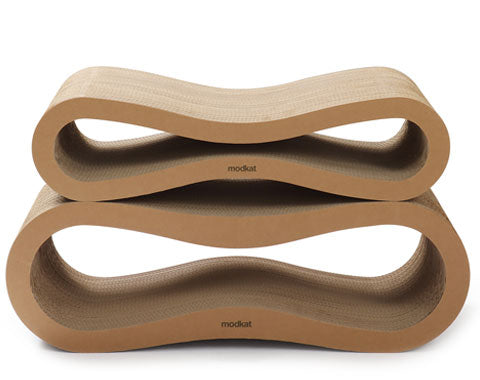
Lounge + Play
Scratchers & toys
Refills
Add description, images, menus and links to your mega menu
A column with no settings can be used as a spacer
Link to your collections, sales and even external links
Add up to five columns
Add description, images, menus and links to your mega menu
A column with no settings can be used as a spacer
Link to your collections, sales and even external links
Add up to five columns
Which Litter Box Is Best for My Cat?
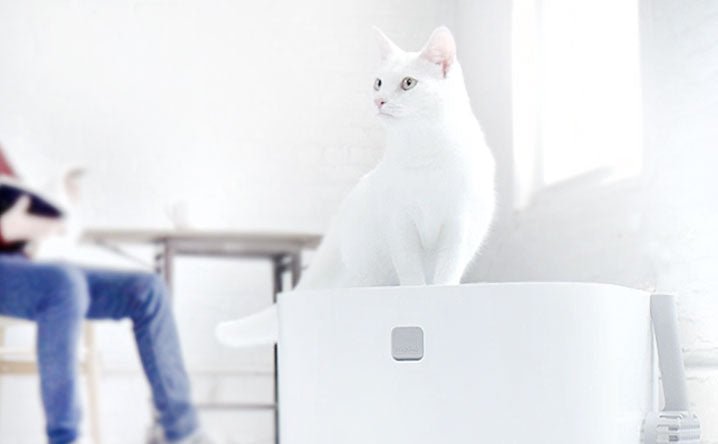
When it comes to choosing a box, your cat deserves the pick of the litter. As humans, we want to know which litter box best controls odor, fits in a small space, and looks great in our apartment. But from the cat’s perspective, what box is best for doing business? Well, the best litter box for cats depends on your cat.
The best litter box for large cats may not work for kittens. And the leading cat litter box for small apartments may not be the optimum choice for a suburban home. Since litter box avoidance is a major reason people relinquish cats to shelters, the right box can make all the difference to cats’ health and happiness.
The bottom line is there’s no one-size-fits-all litter box for cats!
For all of you who have asked us, What kind of litter box should I get my cat? ... Here's our handy reference guide.
What is the best litter box for cats?
Cats can do business anywhere at anytime, but that's not what you — or they — want to happen. That's why cats need litter boxes, so they can go where they need to and when they need to.
With the wide range of cat box options available on the market, though, it can be difficult to know which is best for your cat. Depending on factors like age and size, certain litter boxes may be better than others for your pet. To help you decide, here are things to think about when choosing the best litter box for cats.
For senior cats, a walk-in litter box is often the best choice . More space and easy-access openings can be beneficial for cats with arthritis or other joint issues. These cats may lack the dexterity to jump into a top-entry box. You'll also want to pick something a little larger than regular litter boxes, making it easier for your elderly cat to climb in and out.
For kittens, the best litter box is typically small and easy to get into . Like senior cats, kittens often lack the strength to jump into a top-entry litter box. Giving them an entry-level opening ensures that they don't have to struggle to climb into it and can move around easily once inside.
If you're looking for a litter box for a small apartment, then a sleek, contained option may be best . Some cat box models are made specifically for small spaces, such as corner litter boxes or those designed to fit into tight spots. You may be tempted to consider a self-cleaning litter box, but these are often less effective than they appear. Stick with traditional boxes with modern designs.
No matter what kind of cat you have, it's important to find a litter box that fits their needs. Taking into account factors such as age and size can help you make the best decision when it comes to finding the perfect litter box for your cat.
Let's dig a little deeper into the best litter box for each kind of cat.
Kittens
If you’re welcoming a kitten into your home, chances are you’re also looking to get them their very own litter box. It’s important to find the right box for your kitten so they can feel comfortable and secure when they need to do their business.
Keep in mind a few key factors:
- Look for a box that is the correct size for your little one . Since kittens are smaller than adult cats, opt for a small litter box that’s easy to maneuver around. Smaller boxes can also fit better in apartments or homes with limited space.
- When it comes to choosing the litter itself, the best litter for kittens should be lightweight and finely ground . This will make it easier for kittens to dig and cover up their waste. You'll probably want a non-clumping litter because it's much safer for kittens who may be tempted to eat the good stuff in the box. We like to recommend eco-friendly litter, which can help keep the area — and the earth — clean and smelling fresh.
- Find a box that is durable and easy to clean . Kittens can sometimes play a bit rough, so look for a box that is made with quality material and can stand up to scratching and digging. Also, opt for a box with a front entry as this will help make it easier for kittens to climb in and out of the box.
Average Cats
An average-sizes cat weights 8-11 pounds, and size is a big part of what matters when choosing a box. The ideal litter box will be as long as your cat (tail extended) and as wide as your cat's length (tail not extended). It should also be high enough to prevent litter scatter or urine shots from high-peeing pets.
Now for the big question: covered litter box or uncovered litter box?
For all the conversation this question draws online, the answer is pretty simple — whichever box your cat will use. About 85% of cats willingly use a covered box. That's great because the cover helps control both litter scatter and litter box odors. But if your cat prefers to go proudly, right out in the open, then an open-top box will work fine.
Odor control really isn't that complicated. You can sprinkle baking soda in your litter, or invest in an activated charcoal filter kit. Just be sure to avoid scented litters, artificial sprays, or plug-ins that could make your cat sick.
Plus-size Cats
Got a larger cat? You'll want to find something that is spacious enough to accommodate your feline friend's larger frame. Look for a litter box with a low entry point or one especially designed for cats with limited mobility. A spacious litter box with high sides and a deep bottom will also provide plenty of room for your large cat to do their business in comfort and privacy.
If you have a larger cat, the best kitty litter box for them is one with a lid. This will give them the security and privacy they need, while also containing any odors from their waste. Additionally, look for a litter box that is made from non-toxic materials and has a non-slip bottom to help prevent your cat from slipping and sliding around in the litter.
Cats with disabilities
Choosing the right litter box for cats with disabilities can be tricky. When selecting a litter box, the size and style of the box should be based on the specific needs of your pet.
Generally speaking, a cat with disabilities will appreciate a box with a low entry point, a wide opening, no cover, and plenty of space. Cats with arthritis, for example, may have difficulty getting in and out of a litter box, so it's important to choose one that is low to the ground and easy to access. If your cat uses a wheelchair, you can even purchase a ramp to help them get in and out of their box.
How many litter boxes do you need?
How many cats do you have? The more cats you have, the more boxes you need. Even if you have just one kitty, you'll want multiple litter boxes.
The rule of thumb is that you need one litter box per cat plus one extra. One cat? Two boxes. Two cats? Three boxes. And so on. If your house has more than one floor, you need at least one box on each floor.
Why so many boxes? Three reasons and here they are:
- Cats need space.Unlike dogs, cats are not pack animals. They prefer to live life on their own terms, and they enjoy their own space. Consequently, some cats find it stressful to share a litter box with other animals even if they are collegial housemates.
- Cats like privacy. They can be territorial creatures who like to guard their established space. One cat may stake out a single litter box and prevent other pets from having access to it. If you put one litter box in one area of your home and another box across the house, then the territorial cat can only guard one box at a time.
- Multiple boxes stay clean longer. Ideally, you would scoop the box each time your cat uses it. For most of us, though, that isn't realistic. Consequently, a cat might make a deposit and then need to go again before you have a chance to scoop the box. Some cats won't use a box that has waste in it, though. So you want to have a second box on hand for when the first one is full.
What are the qualities of the best litter box for cats?
Choosing the right litter box for your cat or kitten is an important step in helping ensure their health and happiness. There are several key architectural factors to consider when selecting a litter box.
- The top. If you choose a covered box for your cat, you should know that the box top can serve as more than a ceiling. A locking, swivel lid makes it easy to scoop and clean, and a walk-off mat reduces litter tracking.
- The sides. High sides prevent high-peeing cats from overshooting the mark. These same sides need a seamless connection with the bottom of the box to eliminate the chance of leakage.
- The bottom. Your box's bottom should be made from a hard plastic that's nearly impervious to scratching.
- The liner. Litter boxes need liners. The more durable liners last longer, saving time, money, and space in the local landfill. Plus, they make cleaning the box easier than ever.
- The mat. A mat helps trap litter pebbles, pulling them from cats' paws before they get scattered over the floor. The best mats are soft, inviting, and effective.
- The style. A litter box can look sleek and elegant, even stylish. The more your litter box blends into your home's decor, the better.
Now that you have a better understanding of which type of litter box is best for your cat or kitten, it’s time to make your decision.
No matter which litter box you choose, be sure to provide fresh litter, scoop it regularly, and keep it clean for your cat's health and comfort. Don’t forget to do some research, weigh the pros and cons, and take your cat’s size and age into consideration when selecting the perfect litter box!
Shop the Modkat litter boxes and accessories to freshen up your cat litter area today!
“It looks nicer than any other hooded or open option we considered.”

Categories
Meow from Brooklyn.
Sign up and get early access to product drops, exclusive offers, and the occasional cat meme.
Similar products related to this blog:
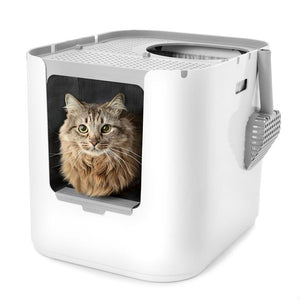
"It looks nicer than any other hooded or open option we considered."

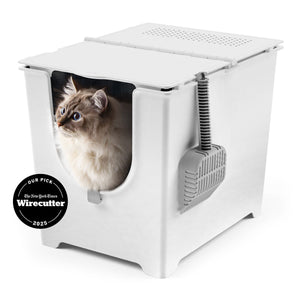
"This litter box keeps everything in, nothing gets out the sides."
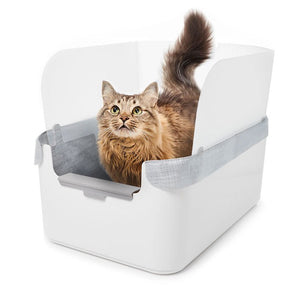
"My beautiful ragdoll cat and I both love the new Modkat Litter tray!"

